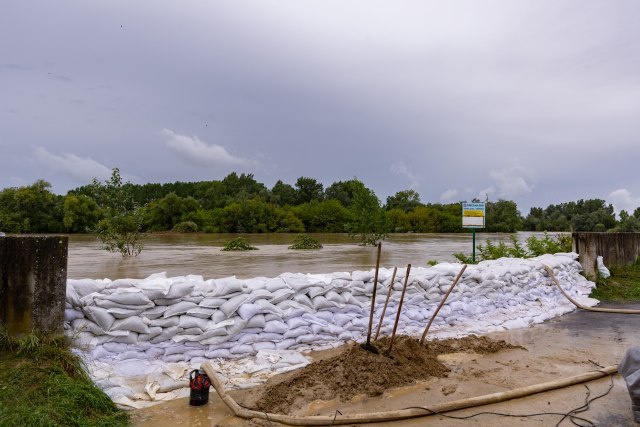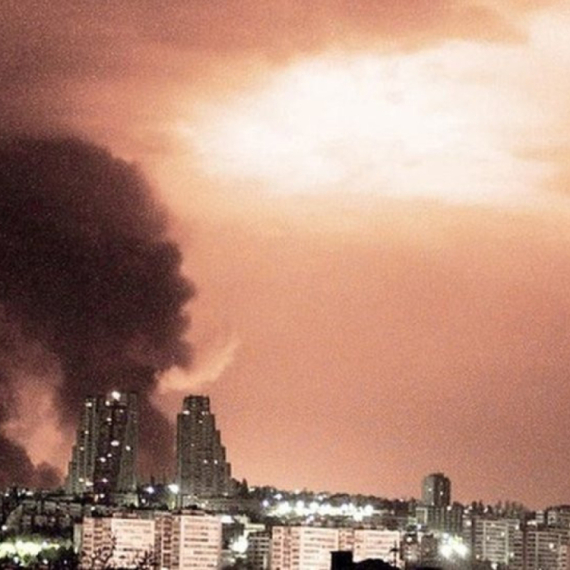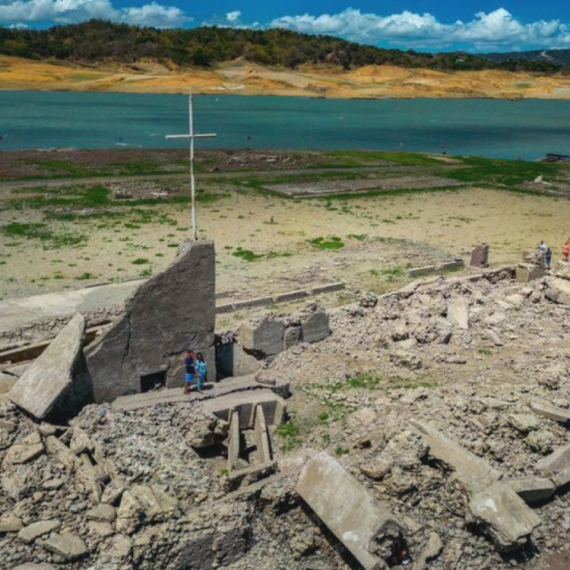Horrible weather is expected, even in Serbia; all recent storms will seem "pleasant"
Hotter summers and more extreme forms of weather disasters are expected, including storms, floods, or fires, a climatologist Ph.D. Vladimir Đurđević announced.
Tuesday, 08.08.2023.
11:26

Horrible weather is expected, even in Serbia; all recent storms will seem "pleasant"
According to him, the necessary steps to halt the process of climate change were not taken in time."The necessary steps are, of course, primarily abandoning coal, oil, and gas as primary energy sources, which have been dominantly defining the energy production process for decades, more precisely for over a century. However, even today, despite all the knowledge we have, the process of phasing out these energy sources is only just becoming visible on the horizon," he emphasized.
He recalled Suki Manabe, a Japanese meteorologist, who was awarded the Nobel Prize in Physics in 2021 for works he published in the late sixties and early seventies, in which he successfully predicted the climate changes we are witnessing today.
"It's almost certain, and to understand why, we need to go back to coal, oil, and gas. During the combustion of these energy sources, carbon dioxide is emitted, so due to their combustion over the last 150 years, humanity has increased the concentration of this gas in the atmosphere by more than 50%. This has led to global warming, as carbon dioxide is the second most important greenhouse gas, contributing to this effect with just over 25%. Because of the increased concentration of carbon dioxide, the planet is now warmer by one degree on average. All countries in the world have signed the Paris Agreement, which states that the process of further warming must remain below two degrees if we want the climate on the planet to remain relatively stable, and if we want the number and intensity of extreme events to keep as 'tolerable'," he explained.
"Preventing the temperature rise means that we need to stop emitting carbon dioxide because as long as we continue to add this gas to the atmosphere, the planet will become increasingly warmer. Abandoning coal, oil, and gas is not a simple task, and the estimate is that as a global society, we need at least around 30 years to fulfill this task. In other words, if we want to halt climate change at the two-degree threshold, we need to stop using these energy sources by 2050. If this most optimistic scenario of fossil fuel abandonment occurs, global warming will stop at two degrees, which compared to the current level of warming means an additional one-degree increase by 2050," Đurđević further added.
"In short, in the next 30 years, in the best-case scenario, we will witness the same warming of one degree that we have observed in the last 150 years. From these facts, it is clear that the entire process will accelerate in the coming decades. Let's return to 45 degrees. In Serbia, on July 24, 2007, in Smederevska Palanka, we recorded an absolute maximum for our country of 44.9 degrees Celsius. Given that it's certain that we can expect additional global warming of one degree in the next 30 years, it's almost certain that we will experience temperatures above 45 degrees Celsius in Serbia. In any case, we are facing hotter summers, and the summers behind us will be remembered as noticeably milder and more pleasant than those we will have in the future. In the years to come, the changes will become increasingly evident from decade to decade," he stated.
The level of water will rise in four days
Mr. Đurđević, in his appearance on RTS this morning program, stated that a wave of high water levels will reach Serbia in the next four days."I believe that the level of the Sava River in Belgrade will rise by two meters, but we are far from the levels considered for flood defense, both regular and emergency flood defense," he said.
He added that we have enough space in the riverbed to accommodate more water than what will arrive in the next four days.
"When the peak of the high water level wave will exactly occur is still a question, but the situation will calm down in the next six to seven days," the climatologist noted.
He explained that the Sava River has several retention areas along its course, where water can be intentionally released, sometimes as a planned action and other times occurring naturally. These retention areas can collect a significant amount of water and reduce the flood wave when it reaches Belgrade or when it approaches Šabac and Sremska Mitrovica.
"The situation is not so critical that we should be particularly concerned; we need to monitor unusual situations or conditions," emphasized Đurđević.
According to him, the Sava River is large, and the wave takes a long time to travel.
"We have time to react if something accidentally changes. We can be confident that nothing terrible will happen," Đurđević concluded.






















































Komentari 0